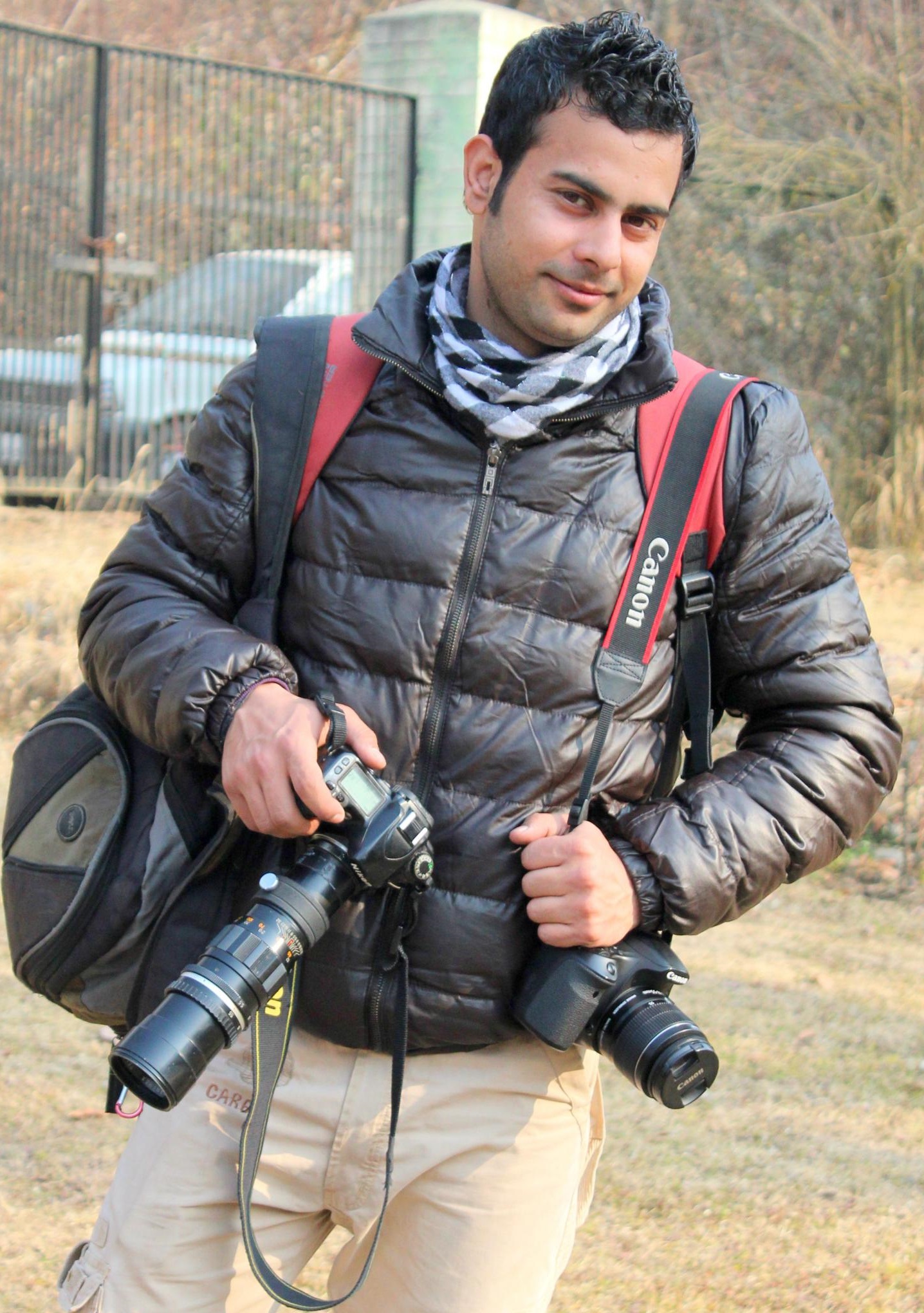It was out of mother’s devotion that made a specially-abled boy to dream like any other normal person and help him to create a different identity through his silent life expression, reports Saima Bhat

In vicinity of Old City’s historic Jamia Masjid, a boy named Aslam needs no introduction. His pals know him a happy-go-lucky fellow, who often ventures out slinging camera across his shoulders. But unlike his friends, Aslam can’t speak, hear. For this deaf and mute boy, the life expression comes from capturing each moment through his camera. The same devotion makes him, perhaps, Kashmir’s only still lensman.
But before arriving on the scene, not everything was fine inside the Dabla House, his home, after the family patriarch died in 1998. He left behind a young widow, Kulsum, with five children, including two specially-abled kids. Seventeen years after, the mother now sports a salt-and-pepper hair—a signature of her abrasive struggle. But the mother is proud than poignant while looking back at her life.
“It was my challenge,” says Kulsum, covering her grey hair, “to educate my children for becoming self-sufficient. I feel like my job is done.”
Without letting the feeling of destitution cowering her, Kulsum provided the best possible education to all her children. Her elder daughter now works as reader in a district court. The second daughter has done MA, Med. The third Nazia, also deaf and mute, is a graduate with advanced diplomas in computers, cutting & tailoring, writing. The fourth daughter is pursuing PhD. And the youngest of them all, Aslam is an undergraduate student, pursuing diploma in professional digital photography and in computers.
Among her children, Aslam and Nazia have been Kulsum’s immediate priorities. So long her husband, Mohammad Amin Dabla was alive, the two specially-abled children were no different than others. Being a Section Officer in Sheep Animal Husbandry Department at Srinagar’s Lal Mandi, Dabla would pick and drop their specially-abled children from a special school for ‘deaf and dumb’ in Solina. When Aslam was barely four, he lost his father—making his mother the default head of the family who soon took job to feed, educate her children.
But the going was no easy for the young mother who had to brave crackdowns, curfews, curbs to pick and drop her children from schools. The equally challenging task was to maintain her morale amid suggestions to snap the educational ties of her kids.
When her specially-abled daughter Nazia passed class 10, the mother was asked to admit her in any embroidery centre—the suggestion she vehemently turned down. Being a brilliant student herself, Kulsum knew the fate of specially-abled children in a ‘disturbed’ society like Kashmir.
It was out of this strict schedule that both her specially-abled children were enrolled in a normal school after passing the Class 7 from ‘deaf and dumb’ school. And now, Aslam is pursuing his BA as a private candidate, while Nazia has become a bridal clothes expert.
Being the youngest in the family, Aslam remains at the center of attraction besides attention. It was because of this caring, supportive atmosphere that thrived his talents. His mother, sisters has been supporting him to pursue his area of interest since his childhood. Over the years, they took help of technology to bridge the communication gap. Other than using a sign language, he now sends text messages to communicate with his family.
The culture of communicating through texts started soon after Aslam passed his Class 10 and was gifted a cellphone. Later sensing his budding creativity, his family bought him Laptop and professional camera. “The motive was to make him feel good without allowing a sense of ‘the other’ being crept in,” says the mother. “And we all are proud of him for keeping our faith.”
This family support and confidence helped Aslam to make mark as a creative photographer. The same creativity aided him to work for Red Cross Society before being selected under open merit in SMHS as an employee. But seeing his talent, the doctors in hospital assigned him the job of surgical photographer in theatre.
But Aslam is beyond the photography wonder. Unlike many others, he has always used his disability as a stepping stone rather than a stumbling one. He participated and won various sports events outside state, including in cricket, volleyball, chess and carom board.
Today, Kulsum is filled with contentment and gratitude. In her neighbourhood, she says, there lives a deaf and dumb boy, whose upbringing was neglected by his parents.
“Today the same abnormal son is taking care of his parents after their normal sons abandoned them,” she says. “Had his parents devoted some time on his well being as well, then today he would have been also created a niche for himself, like my son.”















